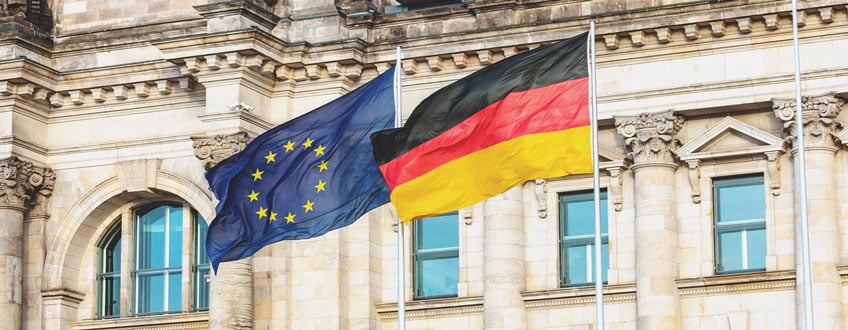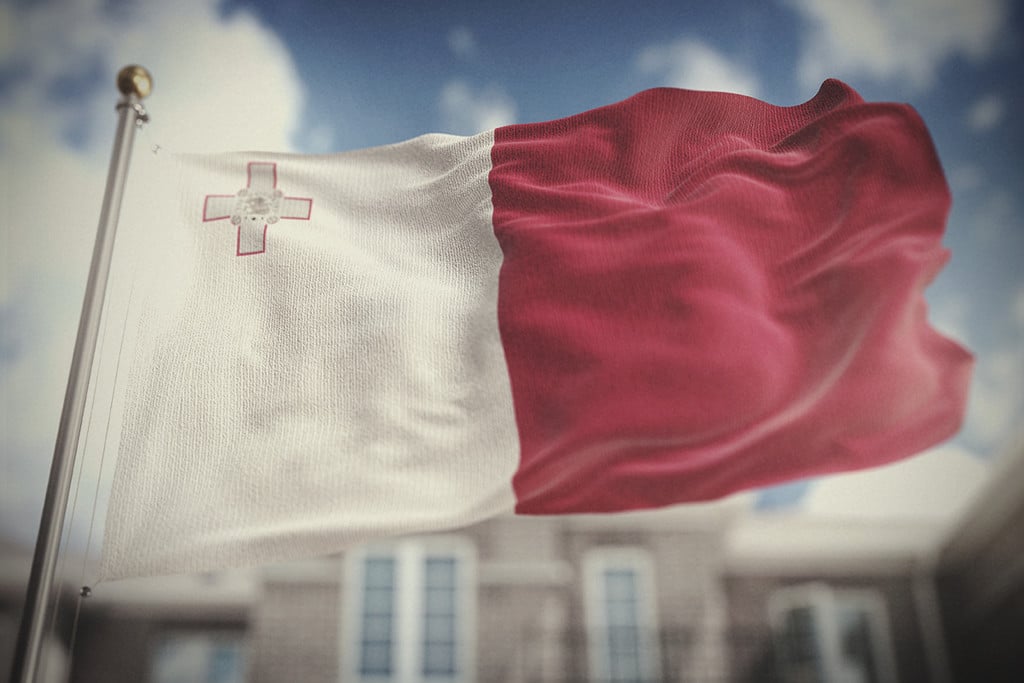.

Germany Has Legalized Cannabis Cultivation & Possession
German citizens finally got the go-ahead to start growing weed on April 1st, 2024. Plus, cannabis clubs similar to those in Spain will likely start to emerge across the country from July 1st. Find out what legal weed in Germany will look like, from possession limits to cultivation guidelines.
Cannabis users in Germany have eagerly awaited the parliamentary vote that will legalize the possession and cultivation of cannabis in the country. After hard negotiations among the nation’s coalition government, German citizens will get the green light to start growing weed from April 1st and to set up cannabis clubs from July 1st.
Find out more below!
Contents:
- Is marijuana legal in germany?
- What will cannabis legalization look like in germany?
- Legal weed in germany: doubts and criticisms
- Cannabis legalization bill announced in 2022
- German weed legalization: important moments in 2019
- Doctors started dishing out legal weed in 2016
- Germany became one of the first countries to legalize medical cannabis in 2007
- Weed in germany: decriminalisation started in 1994
- Germany: the future looks green
Is Marijuana Legal in Germany?
Germany has become the next country within the European Union to legalize cannabis for personal use, following in the footsteps of Malta and Luxembourg.
The ruling coalition government gave the green light for citizens to start possessing and growing specific quantities of cannabis on April 1st, 2024.
On top of this, the government is preparing to make way for private cultivation clubs, similar to those found in Spain, by July 1st, 2024. Cannabis legalization in Germany remains behind schedule largely because of inner conflict within the three-party coalition government. While members of the Greens and liberal Freedom Democratic Party are keen for the legislation to pass, members of the centre-left Social Democratic Party, including Chancellor Olaf Scholz, have launched revolts that have slowed things down.
The bureaucratic process had to emerge from limbo before the vote took place. Germany’s Health Minister Karl Lauterbach, the main advocate of the proposal, declared before the law's passing, foreseeing the momentum: 'I am continuing to assume that the Cannabis Act will be passed by the Bundestag and will go into force from April."
So, cannabis users and growers in Germany are about to live through a truly historic moment. But what exactly will the situation look like after the Cannabis Act comes to fruition?

What Will Cannabis Legalization Look Like in Germany?
Cannabis users in the country have long awaited this crucial vote, which has bestowed them more freedom than growers and users in many other EU nations. Keep reading to learn about the important restrictions that will remain in place, how much users can grow and possess, and what the cannabis clubs of the future will look like.
Important Restrictions Remain in Place
Legislators have taken special care to promote the protection of minors when putting together the Cannabis Act. Therefore, purchasing, possessing, and cultivating cannabis remain completely prohibited for citizens under the age of 18, and supplying a minor with cannabis remains a criminal offence. Any citizen over the age of 21 found helping minors procure or grow cannabis will face a jail sentence of up to five years.
Cannabis users will also be prohibited from consuming the herb within 100 metres of schools, playgrounds, and outdoor public facilities. The government is currently still setting legal guidelines for driving under the influence of cannabis. The Federal Ministry of Transport is set to release legal THC limits by the end of March 2024. Exceeding this limit will result in a fine and possible driving ban.
How Much Weed Can Users Possess?
The Cannabis Act will allow adult citizens to possess up to 25g of cannabis in a public space, and up to 50g in a private space. If found in possession of more than these amounts in either space, citizens could receive hefty fines of up to €30,000.
How Many Plants Can People Grow?
Adult citizens will have the freedom to grow cannabis in their own homes. Current guidelines state that each adult can cultivate up to three flowering plants at one time. Obviously, some variation exists here. Three small autoflowers will yield significantly less than three large sativa-dominant photoperiod strains. While it seems like a loophole, this poses serious problems considering the limits of private possession. Hopefully, future regulatory guidelines will make matters clearer for German growers.
How Will Germany’s Cannabis Clubs Operate?
German cannabis clubs will have a limit of 500 members, and all members must have German citizenship. Members aged 21 and over will have the right to legally purchase up to 25g of cannabis per day, and up to 50g per month. Citizens aged 18–21 will have access to only 30g of herb per month. German clubs will operate slightly differently than those found in sunny Spanish cities such as Barcelona. The biggest distinction? German patrons can’t legally sit back, sip a coffee, and spark up a joint inside; German clubs will serve as points of purchase, not smoking lounges.
Can Germans Buy Weed From Commercial Outlets?
Before being tweaked, the original bill featured a two-stage plan.
The first stage aimed to legalize the possession and cultivation of cannabis and the establishment of cannabis clubs, whereas the second stage was created to legalize commercial sales of cannabis within Germany.
During the political tussles that prolonged the parliamentary vote, the second phase has been put on pause while the federal government works on a feasible model with the European Commission.

Legal Weed in Germany: Doubts and Criticisms
Though the Cannabis Act passed and weed became legal in Germany via the democratic process, the opposing minority, both within and outside of the government, remains larger than most cannabis users would like. Dissenting voices within the SPD itself, namely Sebastian Fiedler and Sebastian Hartmann, view the planned regulations as a breach of the coalition agreement settled back in December 2021.
In their critique of the Cannabis Act, the pair stated: “Important goals of a modern drug policy, such as the fight against organised crime, the discharge of regulatory, police, and judicial authorities or the improvement of youth protection are not achieved”. The deputies went on to add that “A drug policy that deals exclusively with cannabis in this situation fails”, hinting toward their preferred stance manifest in the broad decriminalisation model of Portugal.
Interior minister Nancy Faeser, of the SDP, has also warned of the “serious negative effects” of legalization and the impact it will have on “the protection of children and young people and health protection”.
Despite the vote in favour of legal cannabis, several regulations still need addressing. Cannabis users in the country are awaiting official guidelines on the responsible limit value when it comes to driving under the influence of THC. So far, the motorist club ADAC has pushed for stricter requirements for novice drives, as well as educating the population on the risks of driving under the influence of THC.
Cannabis Legalization Bill Announced in 2022
The derailment of Germany’s sovereign policymaking might seem sudden and shocking to some, but politicians knew they’d face such a possibility straight out of the gate. Lauterbach introduced a detailed plan in October 2022 that served as a guideline for lawmakers to use to draft a bill. Knowing that they’d have to deal with EU approval regardless, the coalition government included the following details[4] in their desired policy changes:
- Possession: The original guidelines suggested that all adults aged 18 and over could possess up to 1.1 oz of cannabis for personal use, regardless of THC content, in private and public places.
- Cultivation: The government would regulate the sale of seeds, and citizens could grow up to three female plants at home, considering they are secured from children.
- Supply: Germany would regulate its own cannabis supply chain in the interests of quality control and stamping out the black market. The country would seek to develop a new thriving agricultural sector and rule out the option of importing marijuana from abroad.
- Marketing: Products would feature neutral packaging that states THC and CBD content.
- Taxation: Cannabis products would feature VAT that correlates to THC content.
- International declaration: Knowing the obstacles laid down by the EU commission, the German government crafted a declaration attempting to prove that legalization would reduce harm regarding youth protection and drug trafficking.

German Weed Legalization: Important Moments in 2019
Many of Germany’s recent policy changes stem from legalization efforts back in 2019. Then, the government started to loosen numerous restrictions, and several politicians started calling for reform. While some pushed for decriminalisation, others started a movement backing legal recreational weed. One year later, in 2020, the government gave pharmacies the green light to start dispensing medical marijuana.
Doctors Started Dishing Out Legal Weed in 2016
Weed in Germany became more accessible to citizens back in 2016 when the government gave doctors the ability to prescribe medical cannabis[5] to patients with certain conditions. The law enabled patients with multiple sclerosis, chronic pain, and cancer to obtain cannabis to manage their symptoms.
Germany Became One of the First Countries to Legalize Medical Cannabis in 2007
German weed legalization first occurred in its primitive form way back in 2007. While far from sweeping reform, the German Federal Institute for Drugs and Medical Devices made the groundbreaking step of approving the use of cannabis for medical purposes. This made the nation one of the first in Europe to legalize medical cannabis and set the stage for future progressive policies.
Weed in Germany: Decriminalisation Started in 1994
When looking at Germany’s past, progressive cannabis reform doesn't stop at the new millennium. In an era of harsh cannabis laws across the world, the nation's highest court decriminalised[6] the possession of small quantities of hash and marijuana in 1994. This order granted citizens the ability to possess up to 0.2 oz of either substance; getting caught would result in a mere fine instead of imprisonment. This marked the beginning of the end of cannabis prohibition in Germany, which dawned in 1929.

Germany: The Future Looks Green
Several politicians of the coalition party in Germany are driving cannabis policy forward. Despite EU roadblocks, they’re taking a pragmatic approach with the ambition to serve as a model for the rest of Europe. Regardless of recent pitfalls, these elected officials have still managed to outline a plan that sees cannabis social clubs, legalized possession for recreational use, and home cultivation on the horizon.
Motivation for this policy change has partly arisen from certain ministers recognising the failures of previous laws. Federal Minister of Justice Marco Buschmann, an advocate of marijuana reform, stated: “The prohibition of cannabis criminalizes countless people, pushes them into criminal structures and ties up immense resources at law enforcement agencies”.
Agriculture Minister Özdemir has also weighed in on the nonsensical policies of the past, adding: “The use of cannabis is a social reality. A decades-long prohibition policy has turned a blind eye to this and thus caused problems above all: to the detriment of our children and young people, the health of users and law enforcement agencies”.
German politicians are approaching new cannabis legislation from multiple angles, emphasising how prohibition has sucked resources from the police and also enabled a black market that provides access to young citizens to thrive. With huge changes due in 2024, Germany will likely serve as a model of success for the rest of Europe and beyond.
- Germany To Introduce Bill To Legalize Cannabis In The Coming Weeks https://www.forbes.com
- Germany scales back plans to allow cannabis sale in shops and pharmacies | Germany | The Guardian https://www.theguardian.com
- https://www.dw.com/en/germanys-two-step-plan-to-legalize-cannabis/a-65301438
- Germany Reveals How It Wants To Legalize Cannabis https://www.forbes.com
- https://www.dw.com/en/germany-gives-go-ahead-to-relax-rules-on-medical-marijuana/a-19234402
- German Court Legalizes Soft Drugs | Prison Legal News https://www.prisonlegalnews.org







































